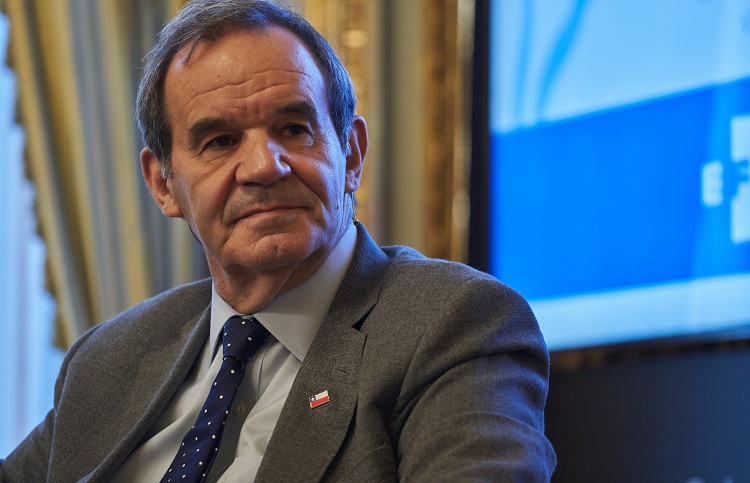The Diplomat
The foreign ministers of the Ibero-American countries elected yesterday in the Dominican Republic the current foreign minister of Chile, Andrés Allamand, to head the Ibero-American General Secretariat (SEGIB) in the coming years.
Allamand, 63, was elected during the meeting of Ibero-American Foreign Ministers, which was held in Santo Domingo under the presidency of the Dominican Republic. SEGIB brings together the 22 countries of the Ibero-American community, the 19 countries of Latin America and the three countries of the Iberian Peninsula, Spain, Portugal and Andorra.
Until now, the SEGIB leadership had been by consensus, but in this case it was decided to hold several rounds of voting to avoid a deadlock and to accept, by consensus, the winner. In the end, the Chilean foreign minister won a very close victory over his three rivals, the former Peruvian foreign minister José Antonio García Belaúnde, the current foreign minister of Guatemala, Pedro Brolo, and the former vice-president of Ecuador, Rosalía Arteaga, who was predicted to be the candidate with the best chances.
The head of Chilean diplomacy will replace Rebeca Grynspan, who left office last September to take over the leadership of the United Nations Conference on Trade and Development (UNCTAD). He will also be the third person to assume the position since the creation of SEGIB in 2005. The first was Uruguayan Enrique V. Iglesias, who held the post from 2005 to 2014.
Andrés Allamand has held the post of Minister of Foreign Affairs since the end of July 2020, but he must leave it, at the latest, on December 19, when Sebastián Piñera’s presidency ends. Besides, between 2011 and 2012 he was Minister of Defense.
In a statement, the Government of Spain yesterday celebrated the election “by consensus” of Andrés Allamand and highlighted his “excellent profile” to manage the Ibero-American General Secretariat, “in a year in which the 30th anniversary of the summit system is being celebrated”. “SEGIB plays a key role in the development of the common Ibero-American space, so the Government expresses its maximum willingness to collaborate with the new Secretary General, as it has been doing with his predecessors, in the performance of his responsibilities,” it added.
During the meeting, the foreign ministers also discussed the preparation of the XXVIII Ibero-American Summit of Heads of State and Government, to be held in the Dominican Republic in November 2022, and approved that the next pro tempore presidency, currently held by the Dominican Republic, will be held by Ecuador, which will organize the Ibero-American Summit of Heads of State and Government in 2024.
In addition, the foreign ministers adopted, also by consensus, the Declaration Together for a Just and Sustainable Ibero-America, in which they call for “innovative measures to promote recovery from the COVID-19 crisis”, urge the international community to guarantee “universal, timely, equitable, fair, quality, unrestricted and affordable access” to vaccines, medical supplies and medicines; call for the promotion of “the various multilateral, bilateral and national initiatives launched in Mexico, Argentina, Cuba, Brazil and Chile for the research, development, local production, packaging and distribution of vaccines against COVID-19”; and propose a debate within the International Monetary Fund (IMF) “on alternatives to voluntarily channel Special Drawing Rights (SDRs) from countries that do not need them to those that do, for example, through the new Resilience and Sustainability Trust Fund (RSTF)”.







